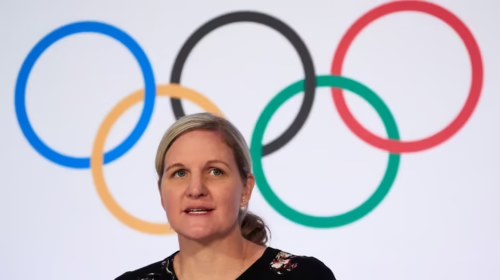The Zimbabwe Football Association (ZIFA) Normalisation Committee has released the names of candidates eligible for the upcoming board elections, set for January 25, 2025.
In a significant development, prominent figures like Walter Magaya and Temba Mliswa did not make the cut for the presidential race.
The candidates for the presidency include Marshall Gore, Philemon Machana, Nqobile Magwizi, Martin Kweza, Twine Phiri, and Makwinje Phiri, signaling a fresh contest for leadership.
The vice-presidential positions will see a contest among Mavis Gumbo, Patience Mutumwa, Winnet Murota, Joyce R Kapota, Loveness Mukura, Peter Dube, Kennedy Ndebele, Omega Sibanda, Francis Nyamutsamba, and Simbarashe J Takava.
For ordinary board member positions, the competition is fierce with candidates like Gilbert Saika, Sharif Mussa Umerjee, Thomas Marambanyika, and many others in the fray.
The announcement comes after an intensive vetting process by the ZIFA Electoral Committee, ensuring only those who meet stringent eligibility criteria under the ZIFA Statutes, 2024, are on the ballot.
This electoral process marks the conclusion of the Normalisation Committee’s tenure, setting the stage for new governance in Zimbabwean football.
The exclusion of high-profile names like Magaya and Mliswa from the presidential candidacy has sparked discussions across the football community about the integrity and transparency of the selection process.
As the election date approaches, the focus will be on these candidates to outline their visions for revitalizing Zimbabwean football, which has been under interim management since the committee’s inception.
The new board will tackle challenges like infrastructure development, grassroots football promotion, and restoring Zimbabwe’s standing in international competitions.
Councillors will cast their votes for a leadership that they believe can navigate these complex issues and propel football in Zimbabwe to new heights.
The ZIFA elections are not just about electing individuals; they are about charting a new course for the sport’s future in the country.
The candidates’ campaigns will now gain momentum, with each contender aiming to convince councillors of their capability to lead and reform ZIFA’s administrative landscape.
As the football community watches closely, the outcome of these elections could redefine the narrative of Zimbabwean football for years to come.
The absence of some expected candidates might shift dynamics, potentially leading to new alliances and strategies in the run-up to the election date.
This pivotal moment in Zimbabwe’s football history underscores the importance of integrity, experience, and vision in the leadership of the sport’s governing body.
With the candidates now known, the next steps involve engaging with stakeholders, outlining plans, and campaigning for votes in what promises to be a hotly contested election.
The football fraternity in Zimbabwe eagerly anticipates the outcomes, hoping for a new era of governance that will address long-standing issues and foster growth.
As the countdown to the elections begins, all eyes will be on how these candidates perform in the public eye, influencing not just the vote but the future of the sport.













